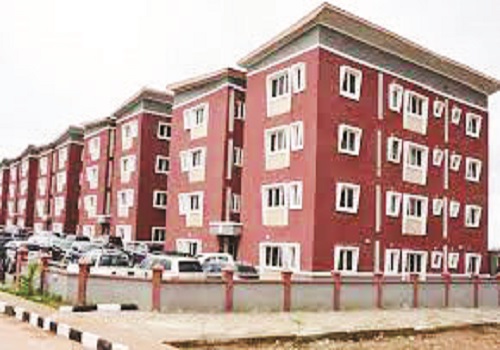The National Pension Commission (PenCom) recently approved the implementation of the guidelines of accessing Retirement Savings Account (RSA) for residential mortgage in line with Section 89(2) of the Pension Reform Act 2014, which allows RSA holders to use a portion of their balance for paying for residential mortgage. This is victory for professionals in the built environment who have been canvassing that the huge funds be ploughed into the housing sector to make home ownership easier. OKWY IROEGBU-CHIKEZIE reports.
Victory has come the way of professionals in the built environment who, in the last 15 years, have been pushing for pension funds to be ploughed into the housing sector to enable Nigerians own decent accommodation.
According to the National Pension Comision (PenCom), the guidelines cover pension contributors in employment either as salaried or self-employed.
To qualify however, beneficiaries must have a letter for the property signed by the owner and verified by the mortgage lender.
It said: “The RSA of the applicant shall have employer and employee’s mandatory contributions for a cumulative minimum period of 60 months (five years). A contributor under the Micro Pension Plan (MPP) is also eligible, provided he/she has made contributions for at least 60 months (five years) prior to the date of his/application. RSA holders who have less than three years to retire are not eligible while married couples, who are RSA holders, are eligible to make a joint application, subject to individually satisfying the eligibility requirements.’’
The document further stated to qualify as a mortgage lender, the company must be licensed by the Central Bank of Nigeria (CBN), comply with the Contributory Pension Scheme (CPS) and have valid Pension Clearance Certificate (PCC).
Former Director-General, Lagos Chamber of Commerce & Industry (LCCI), Dr Muda Yusuf, told The Nation that the decision of the PenCom to allow those on the pension scheme to withdraw 25 per cent from their RSA for mortgage or building houses was commendable.
He said the policy would impact significantly on the housing sector and finance.
Yusuf, the founder, Centre For The Promotion of Private Enterprise (CPPE), said: “It’s practically impossible to have a mortgage finance scheme in an economy where the interest rate is above 20 per cent. Any mortgage contracted under that kind of interest rate regime is like committing suicide because, at the end of the day, the owner who took the loan, would forfeit the property.
“Funding the housing sector has been a very big problem over the years. l am positive that this particular policy will release lots of funds into the housing sector. It’s also good for employees because of the rate of inflation.”
According to him, if the pension contributors can get part of their money and invest they would gain in terms of the asset in which they have invested in and many of them need to have their houses before they get to 60 or retire from service.
Muda said under the old system, until a contributor turns 60 or retire, he could not own a house because that is when they are supposed to access their mortgage, but in the new system, even at a much younger age, people will have their houses or homes.
The former LCCI boss further stated that professionals in the real estate and construction sector would leverage this development to increase and improve housing supply.
President, Nigeria Institute of Quantity Surveyors (NIQS), Olayemi Shonubi said the new policy would not only deepened the mortgage sector, which has hitherto been moribund, but also lead to increase in the housing stock.
He said with the RSA funds, some prospective subscribers would get funds to finance the purchase of their desired homes while those who have mortgages would pay according to the length of time they have or at least reduce the repayment period.
“The policy will, hopefully, help stem the corrupt practices by public officers, particularly those in the junior and middle cadre, as there is security of an abode after retirement unlike what is obtainable where the fear of how to finance their retirement homes has driven many of them into embarking on corrupt practices.”
Shonubi said the policy would also be a win-win situation for developers, as there would be an increase in the number of subscribers for their development with the availability of funds from their RSAs, which means that more houses would be built.
































